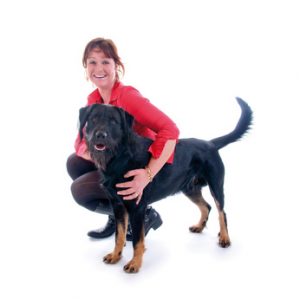Level 3 Diploma in Assistance Dog Training
- This Assistance Dog Trainer course explores how to train dogs to help people with sight or hearing difficulties, physical disabilities, and those prone to seizures, to lead independent lives.
- This qualification has been designed for those wanting to work as an Assistance Dog Trainer with dogs in roles such as Guide Dogs, Hearing Dogs, Disability Dogs, Cancer Detection dogs, Diabetes Hypo-alert dogs, Seizure alert dogs, etc.
- This unique qualification has information about the origins of this sector and more about the sector today, the everyday work of the assistance dog, the selection, development and training of assistance dogs and the profile and personal attributes required, including how to select the assistance dog organisation best suited to the individual.
Course Modules
(356 GLH)
Module 1
Communication and Body Language
This unit explores the body language of both dogs and humans involved in training. Learn about the stress in canines and how to spot the signs of stress.
Module 2
Care of Canines
Learn about the basic care of dogs, including health, handling, nutrition and care of dogs in kennels.
This unit explores care routines, appropriate canine handling methods, how to ensure good canine welfare and canine nutrition. Students will also learn how to reduce and manage stress for dogs in kennels and foster homes.
Module 3
First aid
Learn how to carry out emergency aid and basic first aid. This unit also includes information about how to carry out health checks on dogs.
Module 4
Behaviour and influences
Learn about the causes of the most common canine behaviour problems and how to solve them. Students will explore recent research and development in dog behaviour and expected behaviours for breeds.
Module 5
Dogs and the Law
Students will investigate the laws surrounding dogs and disabilities. This unit includes information about disability and accessibility law as well as custodianship as opposed to ownership in legal terms.
Module 6
Disabilities
Students undertaking this unit will look at different types of disabilities that they could encounter when working as an Assistance Dog Trainer.
Learn how disability affects training and how to train from the point of view of the individual
Students will also gain an understanding of the human-animal bond.
Module 7
Dog Training
Students will look at how dogs learn, and how to motivate dogs to learn. Learn about adaptability including multiple handlers and environmental changes.
Gain an understanding of the importance of enrichment and off lead exercise. Learn about marker training and recall, natural dog behaviours, play styles and positive reinforcement.
Module 8
Managing Volunteers
Students completing this unit will learn how to manage volunteers as an integral part of the Assistance Dog Training process.
Learn how to train volunteers when fostering dogs. Gain an understanding of the client matching process.
Module 9
Puppy Development and Behaviour
Students will investigate the behaviour of puppies including how to manage behaviour and training from a young age.
Learn how to rectify behaviour issues and how to habituate puppies to prevent problems.
Module 10
Assessment of the Needs of the Dog
Students will explore how to assess the needs of the dog, including how to provide support.
Learn how to assess dogs’ support needs and how to interpret formal reports concerning clients and dogs.
Online Webinars
Online training negates the need for travel or overnight accommodation in many cases and also allows access to overseas students.
The teaching for this unit ensures your learning meets the assessment criteria for the qualification
You will still learn skills that will enable you to:
recognise the emotional state of canines
prepare a dog for Assistant Dog Trainer work
apply a harness and lead using force and fear free methods
use clicker/marker training with dogs
use force and fear free methods at all times
*You will have access to the course for 12 months only. You can purchase course extensions.
We offer a selection of accredited and employer recognised courses specifically designed for careers working with animals.
If you have any questions about our courses, please contact us.
We’ve assisted many people to achieve their goal to work with animals. Read more about our 5-star reviews and student success stories.
Gain relevant training to achieve your goal to work with animals.



